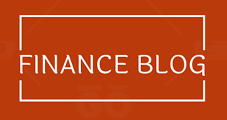Utilizing the testimony of an expert witness requires a heightened level of caution, especially in the process of selection and engagement. Why? Because it’s crucial to be mindful of the ethical implications when using an expert witness to bolster a case.
In a perfect situation, an expert witness serves as a guide to clarify evidence and procedural matters. However, if not careful, the courtroom could be tainted by bias, misinformation, and subjective opinions. While different states may have varying perspectives, these ethical considerations remain crucial for attorneys when getting an expert witness.
The first area demanding careful consideration is compensation. The payment for an expert witness should reflect their expertise, knowledge, and time invested. This fee should be determined upfront and should not be contingent upon the outcome of the proceedings to avoid improper incentives. Moreover, attorneys are prohibited from offering inducements or contingency fees, as outlined in the American Bar Association’s Model Rules of Professional Conduct.
Compensation changes depending on the expertise of the individual. More than 40% of experts command over $10,000 for each engagement, with a tiny amount (5%) anticipating earnings exceeding $50,000 per case. Conversely, about one-third (32%) earn less than $5,000 per assignment. Attorneys should avoid any expert who suggests that a more favorable opinion can be bought at a higher price.
Similarly, another crucial area requiring caution is the ethical stance of the witness. Their job is to offer testimony based on their specialized knowledge or specific connection to the subject. Opinions must be rooted in facts and evidence relevant to the case. Therefore, the witness is obliged to share information that could oppose the hiring attorney’s argument. Failure to do so, or selective presentation of information, risks introducing prejudice into legal records. When bringing in an expert witness, it is important to find a professional who follows to these guidelines.
Though, a witness can neutrally advocate for the attorney by showing researched material, without changing the factsoffered by the evidence. By remaining impartial and levelheaded, they can reduce the danger of bias and potential ineligibility from the court.
Ethical concerns must support theutilization of these experts, regardless of it is in a criminal or civil case. Moving forward, everyone involved must usecaution in their interactions to avoid compromised testimony, obstruction, or any possible ethical issues. For more information into expert witnesses and the related ethical considerations in hiring, please see the added resource.
Infographic provided by Forensis Group, a provider of expert witness services

